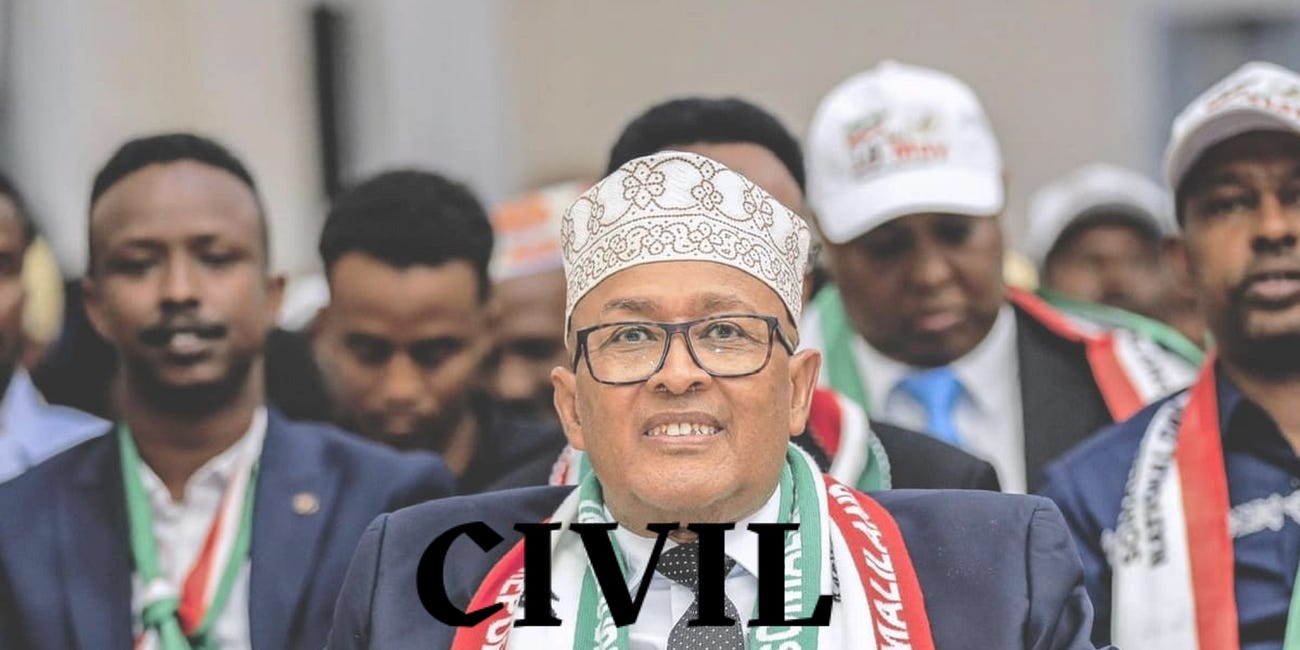is puntland at war with sudan?
how the uae’s meddling and proxy wars are eroding somalia’s fragile sovereignty and pushing the country back toward conflict.
Somalia is not at war with Sudan. But if you follow the cargo planes landing at Bosaso, the radar domes rising above Puntland’s coast, or the fortified compounds at Berbera, you see a different truth, Somali soil is being used to fight somebody else’s war.
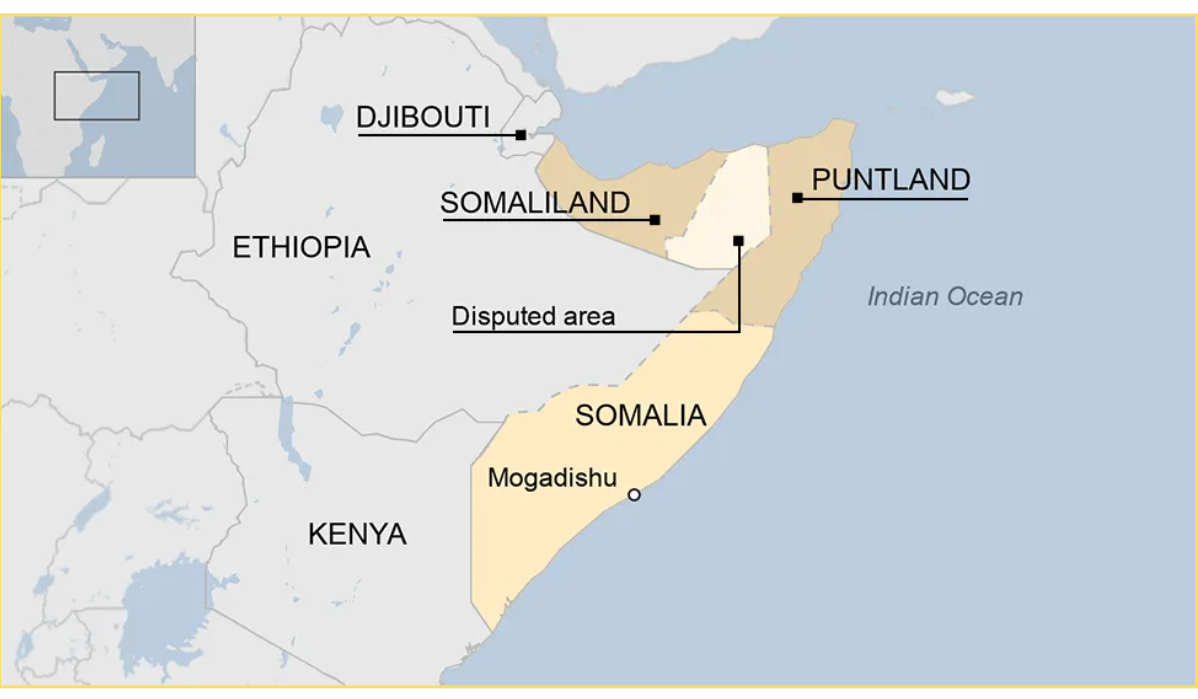
Puntland, one of Somalia’s federal member states, declared itself an autonomous region in 1998 with its own administration and security forces. Unlike Somaliland, it has not sought full independence, but it acts with significant autonomy from Mogadishu, making it easier for outside powers like the UAE to strike deals directly with its leaders.
The United Arab Emirates, under the language of investment and counterterrorism, has built a logistics corridor across northern Somalia that now doubles as a war platform for Sudan’s Rapid Support Forces. The story is familiar in the Horn of Africa because countries like Somalia, Eritrea, Ethiopia, and Sudan have all seen moments where foreign powers exploited weak governments and turned local conflicts into wider proxy wars. Somalia now faces the same risk (not the first time), a weak state stripped of its sovereignty by outsiders and its land turned into a battlefield for wars that ordinary Somalis never agreed to fight.
On paper, Bosaso airport is a civilian hub. In practice, it is a military supply chain. Investigations have shown cargo airlines linked to Emirati royals running flights from UAE bases into Puntland, then pushing on toward Darfur with their transponders switched off. At Bosaso port, ships labeled as humanitarian aid offload crates that eyewitnesses later watch being trucked to the airport. Aid in name only as these shipments contain drones, weapons, and military vehicles for Hemedti’s militia. For Puntland’s president Said Abdullahi Deni, the arrangement delivers money and political backing. For Mogadishu, it delivers humiliation. Federal sovereignty reduced to watching a regional strongman turn Somali territory into an offshore armory.
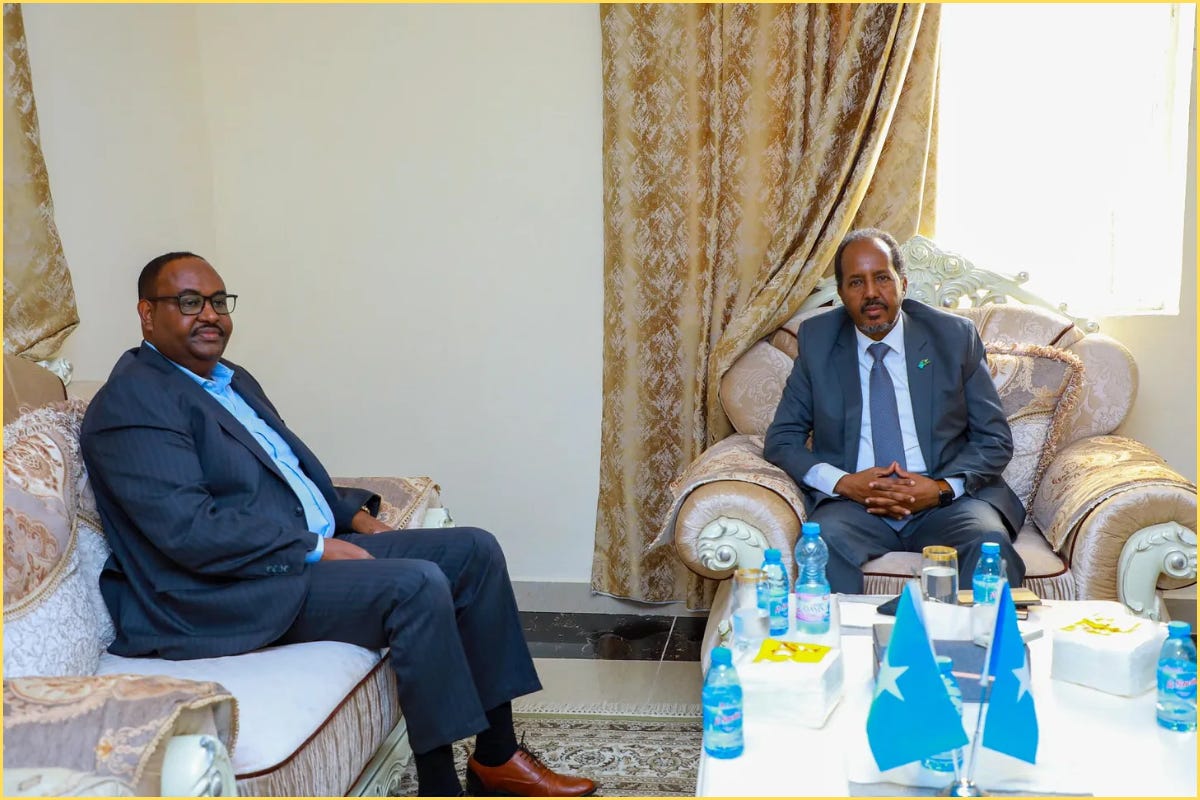
The militarization is not just about cargo. Back in March, satellite images confirmed the installation of an Israeli-made radar system outside Bosaso, supplied and operated by the UAE. The official line was protection from potential Houthi strikes. The reality was a system with range across the Red Sea and into Sudan, giving the RSF real-time battlefield surveillance they could never field on their own. To many Somalis, the radar was a clear betrayal of sovereignty. Deni was accused of cutting secret deals with Abu Dhabi behind the backs of both Puntland’s parliament and Somalia’s federal government. Mogadishu, desperate not to alienate the Emiratis who bankroll counter-al-Shabab operations, stayed silent.
Bosaso also plays host to a quieter traffic. Colombian mercenaries recruited by Emirati firms have been processed in Puntland before being flown onward to Sudan. These men, once presented as counterterrorism trainers, are now soldiers for hire in another country’s war. A report from this month revealed that even young Somali men from Bosaso have also allegedly joined the RSF, with several killed in Darfur while fighting for Hemedti’s militia. Their deaths exposed how Puntland’s people, not just foreign mercenaries, are being drawn into Sudan’s war.
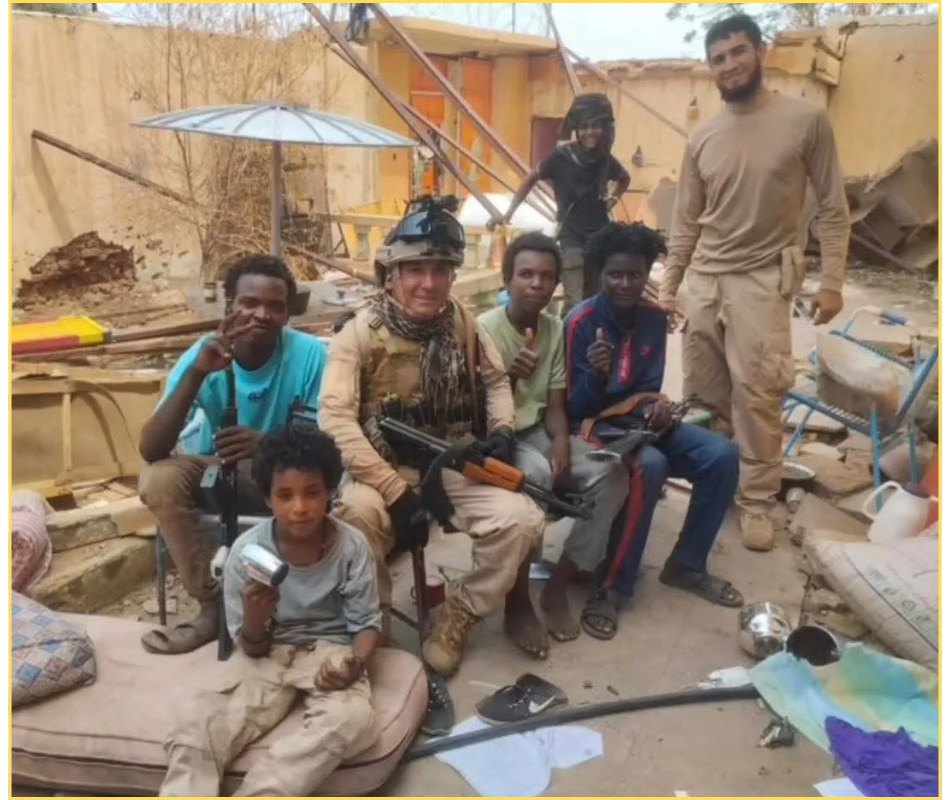
Looming behind these flows of fighters is the Puntland Maritime Police Force, created in 2010 after Puntland passed its first anti‑piracy law, and built from the start with heavy Emirati funding. Officially it was presented as an anti‑piracy unit, but from the beginning it operated outside Somalia’s federal security structures, raising warnings from security monitors that it functioned more like a private army under Puntland’s president than a national force. It is not clear whether the PMPF has played any role in sending fighters to Sudan, but its continued financing, reportedly around $50 million annually from the UAE, shows how Abu Dhabi has effectively built and maintained a private army inside Somalia to protect its interests. Over time it has become a heavily armed force under Deni’s command, financed and supplied almost entirely by the Emirates. What began as counter‑piracy has morphed into an Emirati‑backed security arm inside Somalia, one that secures Abu Dhabi’s influence, keeps its preferred allies in power, and cements foreign control over Somali soil and lives.
Further west, in Somaliland, the picture is just as grave. Berbera’s base, established in 2018 despite Mogadishu’s protests at the United Nations, is firmly established. Under President Abdirahman Irro, the outpost functions as another Emirati foothold. Alongside this military presence, the UAE, working closely with Israel, has also been pushing propaganda campaigns abroad to secure international recognition for Somaliland, including attempts to lobby Washington.
the somaliland recognition roadshow
Over the past year, a quiet but coordinated marketing push has been trying to sell a new Israel–Somaliland recognition framework, essentially an extension of the Abraham Accords model, this time in t…
Sudanese officials suspect that drone strikes on Port Sudan back in May may have originated from Bosaso. Whether or not that claim is accurate almost doesn’t matter. The very plausibility of the allegation shows how deeply Somalia has been entangled into the logistics of a foreign war.
The question is why Somalia? Geography makes it convenient. The Gulf of Aden is a short hop from Emirati bases (in UAE and Yemen), and Puntland’s and Somaliland’s runways put Abu Dhabi’s logistics within easy reach of Sudan. Politics make it easier still with Mogadishu locked in endless battles with its federal states, Abu Dhabi can cut deals with local leaders who welcome the cash. Counterterrorism and investment provide the convenient mask. The Emirates get deniability. Somalia becomes a silent front.
To see where this pattern leads, look across the Red Sea. In Sudan, the UAE’s quiet presence has grown into near‑total economic dominance. Almost all of Sudan’s gold, both declared and smuggled, flows through Dubai (by some estimates more than 90 percent of production). Emirati banks, including Dubai Islamic Bank (which owns a major stake in the Bank of Khartoum) and Abu Dhabi Islamic Bank, as well as Emirati companies, process and profit from this trade. And while the Sudanese Armed Forces still control Port Sudan and the coastline, the $6 billion Abu Amama port project, signed in 2022 and canceled in 2024, shows how far Abu Dhabi was willing to go to dominate the Red Sea coast. Sudan’s finance minister said at the time, “We will not give the UAE a single centimetre on the Red Sea coast.” Yet even with that deal scrapped, the UAE has not abandoned its ambitions for this shoreline and will pursue whatever means it can to secure control and influence there.
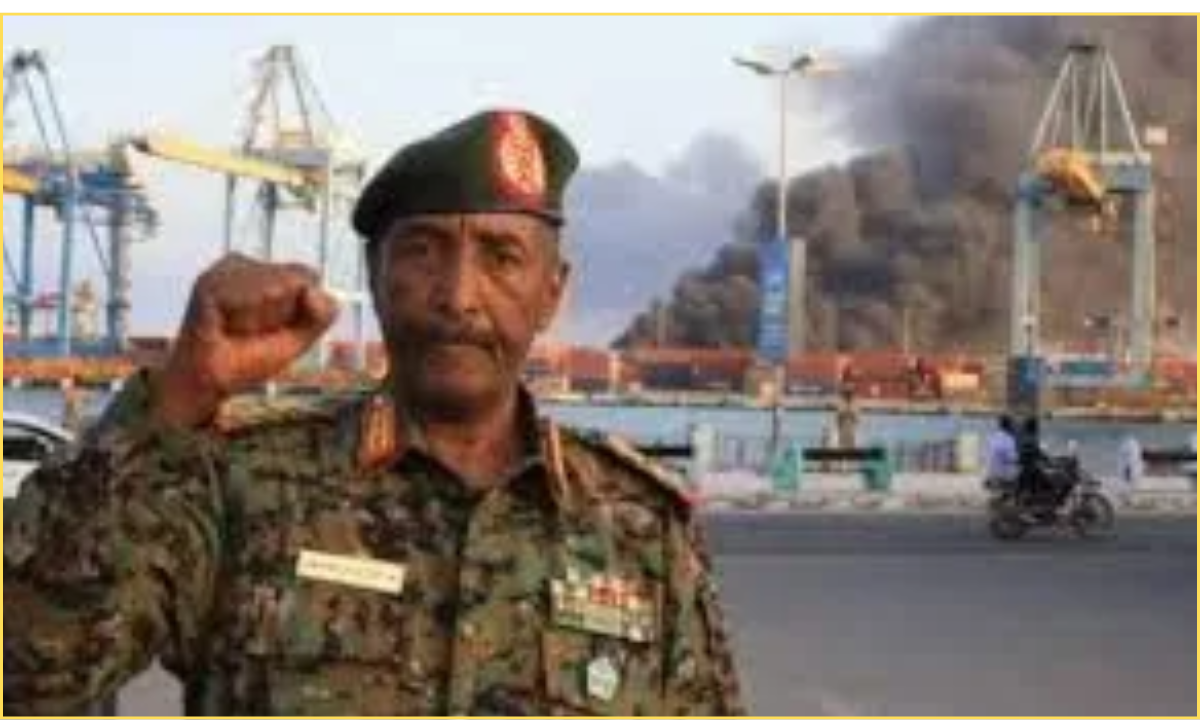
When Sudan’s army retook much of Khartoum in March and gained momentum, the RSF answered with drone strikes on Port Sudan, retaliation that followed an SAF airstrike in Nyala that destroyed an RSF cargo plane and killed foreign advisers. These were the very strikes Sudanese officials suspected had been launched from Somali soil, out of Bosaso. As fires burned at the port, General Abdel Fattah al‑Burhan vowed retribution and openly accused the UAE of enabling the RSF’s campaign. The strikes confirmed what many already suspected: Abu Dhabi’s hand was guiding events on the battlefield. Sudan shows the result when this strategy is left unchecked. Somalia, for now, is quieter, but the direction it is heading is hard to ignore.
Unfortunately, the sad reality is that Somalia cannot expect real stability or progress anytime soon and this is especially painful because, for a brief moment, the country appeared to be turning a corner. Security had slightly improved, remittances and business were fueling small economic gains, and there was a sense that the long civil war was finally winding down. But these fragile signs of progress have now been overwhelmed by renewed foreign meddling, which has seized on Somalia’s deep internal divisions, exploiting and amplifying them to dangerous new levels. The federal government itself is corrupt, weak, and often seen as a pawn of Turkey in the wider UAE–Turkey rivalry. At the same time, Puntland, Somaliland, and even Jubaland are being pushed by the UAE to ignore the federal government and move closer to secession. If this path continues, Somalia could slide further down Sudan’s road of weakened sovereignty and foreign-backed militias, a path that would likely be even worse here, since numerous foreign-backed militias or ”armies” already exist and could multiply further. Somalia knows this cycle well from its long history of civil war. Yet many Somalis still look to foreign powers as friends, when in truth they never are. The only real allies Somalis have are each other, but tribal divisions turn them into enemies while outsiders are welcomed as partners. The UAE (and others) exploits this disorder, feeding chaos in a country that had only just begun to recover from decades of war.
For now, silence rules. Somali leaders do not confront Abu Dhabi, or any of the other foreign powers involved, because they depend on outside money and protection. Regional elites take the cash, and the cargo planes keep landing. But it is not only about what passes through Somali ports and runways, it is about the way foreign meddling shapes politics, fuels corruption, and pushes regions toward secession and/or war.
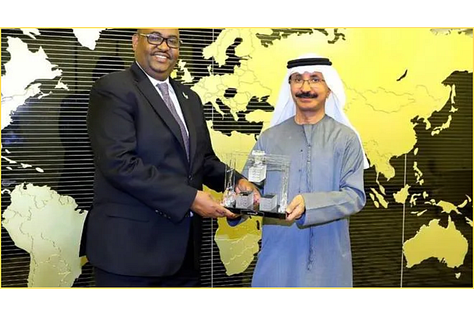
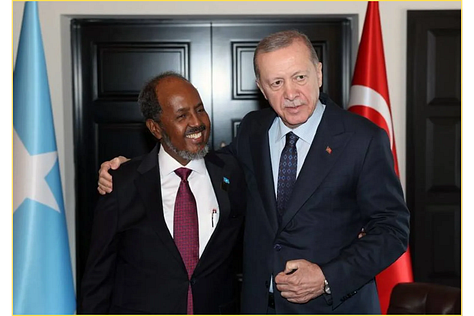
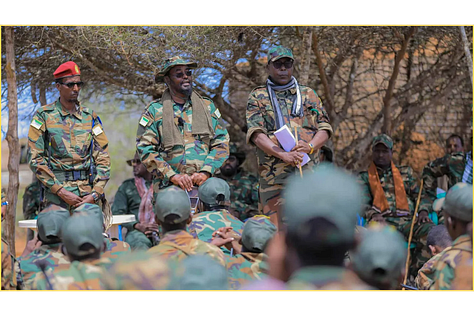
Sudan shows the price of letting these UAE networks grow unchecked, militias strong enough to devour the country. Libya, too, shows what happens when both the UAE and Turkey dig deep into another nation’s affairs, they prolong conflict and block peace. Somalia cannot let this cycle repeat; it must break free before outside powers and their proxies drag it into yet more war.



